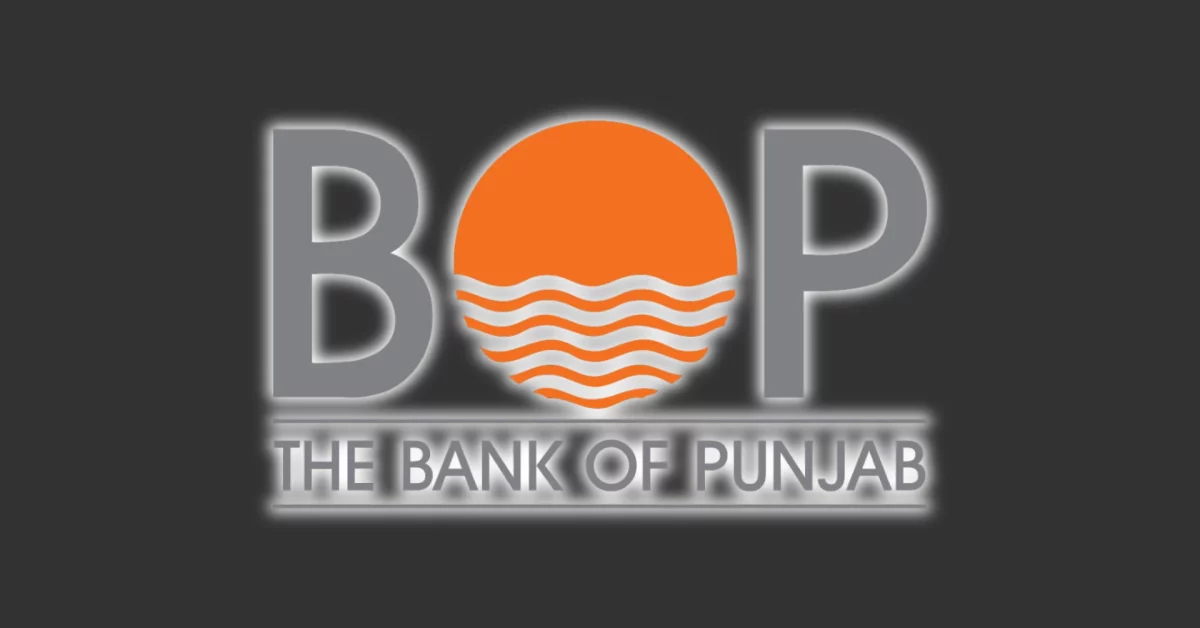
Pakistan to Receive First US Oil Shipment in October
August 2, 2025
Pakistan and US Forge Strategic Crypto Policy Partnership
August 3, 2025Solar, Sensors, and Sukuks: The Future of Climate Tech in Pakistan
Climate Change has positioned itself as the pivotal challenge of the 21st century. Pakistan finds itself in a unique position where it faces the brunt of the impact; from intensifying heatwaves, erratic rainfall patterns, and devastating floods that cause devastation to the economy and, in extension, the nation’s finances. Traditional methods of resilience are proving inadequate. This has created a niche in the intersection of technological and sustainable solution spectrums that promises to make development not only smarter and safer but also sustainable.
The emergence and increased integration of climate technology with financial markets and solutions is a promising trend that can allow Pakistan to navigate its green transition, it is adopting not only innovative tools like solar energy and precision farming but also exploring novel financial models to fund them. Among these, Islamic finance instruments, green Sukuks are showing particular promise.
Climate Finance: The Rise of Green Sukuks.
The recent launch of Pakistan’s first Agri-Infrastructure Sukuk in July 2025 is a powerful case in point. Issued jointly by InfraZamin Pakistan, Sunridge Foods, and BankIslami, the PKR 2 billion bond was fully subscribed and AAA-rated. Its proceeds are earmarked for renewable energy installations, modern silos, and improved food processing infrastructure. This marks a milestone not only in Islamic finance but also in green development finance.
By combining Shariah-compliant finance with climate-smart infrastructure, this project establishes a model for environmentally sustainable agriculture. It opens doors for private capital to enter critical areas, providing investors with both financial and environmental returns. It also demonstrates that ethical finance can be more than a niche practice; it can be transformational in nature.
Sukuks, or Islamic bonds, are unique in that they are interest-free and backed by an asset, reflective of religious principles. For the Agri-Infrastructure Sukuk, that translates into returns based on real agricultural assets: solar panels, wind turbines, silos. Therefore, making the financing both rooted and transparent, which helps establish trust among a broad set of investors.
Additionally, adding the public and private players gives added legitimacy and capacity. InfraZamin offers a 100% credit guarantee, while BankIslami is the Mandated Lead Arranger and Al-Hilal the Shariah advisor. This type of multilateral coordination is precisely what Pakistan requires to break systemic hurdles in green investment.
Technology for Resilience: Solar and IoT
But money is only part of the solution. The technologies themselves need to be resilient, locally relevant, and scalable. Take solar energy, for example. Given the levels of sunshine during the year, Pakistan is perfectly positioned to harness solar energy for rural power supply, irrigation pumps, and food processing. But its take-off has been held up by affordability and patchy policy support.
Innovations like pay-as-you-go solar models can bridge that gap. These systems allow farmers to lease solar panels and pay in instalments using mobile money, making renewable energy more accessible. When paired with Internet of Things (IoT) devices, these panels can also power smart irrigation systems that conserve water and boost crop yields.
Water Scarcity and Precision Agriculture.
Moreover, Pakistan being a highly water-stressed country—the country ranks 14 among the 17 ‘extremely high-water risk’ countries of the world, a list that includes hot and dry countries like Saudi Arabia, with projections showcasing that the country may reach absolute water scarcity by 2035, water conservation therefore becomes particularly crucial in Pakistan.
Building on the preceding paragraph, as Pakistan is an agrarian economy, where agriculture contributes approximately 24% to GDP and employs 37.4% of the labour force, water availability is a critical determinant of agricultural productivity. However, climate change has become a significant destabilizing factor, altering the hydrological cycle through increased mean temperatures and exacerbating water stress across the country. Recent Studies indicate, ‘that the Tmax and Tmin fluctuated at rates of 0.12–0.29 and 0.10–0.37 °C/decade, respectively’ and impacting water levels drastically across the Upper Indus Basin.
Here, technology-based solutions such as sensor-based drip irrigation and soil moisture monitoring become game-changers. Such forms of automatic programmed irrigation systems reflect the use of a structural system that needs no requirement or minor of physical involvement beside the inspection. Thus, these technologies provide real-time data to optimize water use, reduce waste, and enable precise application of fertilizers whilst minimizing labour input.
Such precision agriculture practices are already being piloted in areas of Punjab and Sindh by agri-tech startups through pilot initiatives. These pilots demonstrate that even smallholder farmers can adopt climate-smart agriculture under proper support, but scalability is still a problem in the absence of institutional support.
The Role of Public-Private Partnerships (PPPs).
It is these types of areas where public-private partnerships (PPPs) become a paradigm of usefulness. By pooling state capacity with private ingenuity, PPPs have the potential to expand successful solutions. Governments, for example, can subsidize the upfront cost of sensors or provide tax credits for green start-ups. While private companies can provide last-mile delivery and technical assistance.
The Agri-Infrastructure Sukuk demonstrates how PPPs can also catalyse financing. By leveraging public guarantees and private underwriting, Pakistan can de-risk green investments and make them more attractive to institutional investors. This is especially crucial in agriculture, where perceived risks often deter funding.
Digital Infrastructure and Data Governance.
Data governance is yet another essential pillar in this ecosystem. Sensors and IoT devices produce vast magnitudes of datasets, which can be utilized to forecast pest attacks, track soil fertility, and streamline logistics. But this calls for secure, standardized, and interoperable platforms. Without proper data governance, the digital jump can turn into a leap of faith.
Fortunately, initiatives are emerging. The Pakistan Agriculture Research Council (PARC) and the private sector are starting to build open-data platforms. If expanded to scale, these can become the foundation of digital agriculture. Think of a dashboard where farmers can receive localized climate forecasts, planting advice, and market prices—live.
They also pave the way for climate insurance products. With data, insurers can provide index-based crop insurance that automatically pays up in the event of floods or droughts. This eliminates dependence on arbitrary government relief and enables farmers to manage risk more actively.
Here too, green Sukuks can make an entry. Money raised through these instruments can be utilized to support insurance schemes or construct digital infrastructure. In this manner, climate finance becomes not merely a source of funding tangible assets but one of creating systems resilience.
Locality, Inclusion, Equity, and the Role of Women.
Another frontier worth exploring is localized manufacturing of green tech. Currently, much of the equipment is imported. This drives up costs and creates supply bottlenecks. By investing in domestic production, Pakistan can reduce dependency and generate green jobs.
Support by the government in the form of tax holidays, R&D grants, and export subsidies can initiate this ecosystem. Special Economic Zones (SEZs) dedicated to climate tech manufacturing may further speed up this process. This would not only make supply chains more robust but also establish a new industrial base based on sustainability.
International partnerships can also help. Multilateral banks, climate funds, and bilateral donors have a role to play in de-risking investments, sharing best practices, and supporting technology transfer. The recent ADB recommendations on digital infrastructure tax reform underscore the importance of enabling regulatory environments.
It’s also important to think about the social aspects of climate tech. Technologies do not exist in a vacuum, adoption rests on trust, training, and cultural appropriateness. Extension services, localized language interfaces, and farmer cooperatives can be important factors in facilitating adoption.
Lastly, one of the most important aspects of this digitalised and automated form of green revolution rests on its frameworks for incorporating inclusivity and equity within its practical models. It therefore becomes incumbent for women, in particular, to be at the centre of this transition. The sector employs a significant portion of the population, approximately 68% women, compared with only 28% men. However, women’s roles often go unrecognized, and they face numerous barriers in accessing resources, knowledge, and decision-making power. Climate tech interventions, therefore, become necessary to empower women; by mobile apps, targeted credit, or women-led cooperatives.
Vision Forward.
To truly scale climate tech in Pakistan, a multi-tiered strategy is needed. This includes regulatory reform, capacity building, infrastructure investment, and regional cooperation. Ultimately, the goal is to build an ecosystem where sustainability is embedded not just in environmental goals, but in economic and social development. Where a farmer in Bahawalpur using a solar-powered sensor is not an exception, but the norm.
The fusion of solar, sensors, and Sukuks, thus, represents more than a technological shift—it is a paradigm of new development.
Read more: InfraZamin, Sunridge & BankIslami Debut Agri Sukuk






